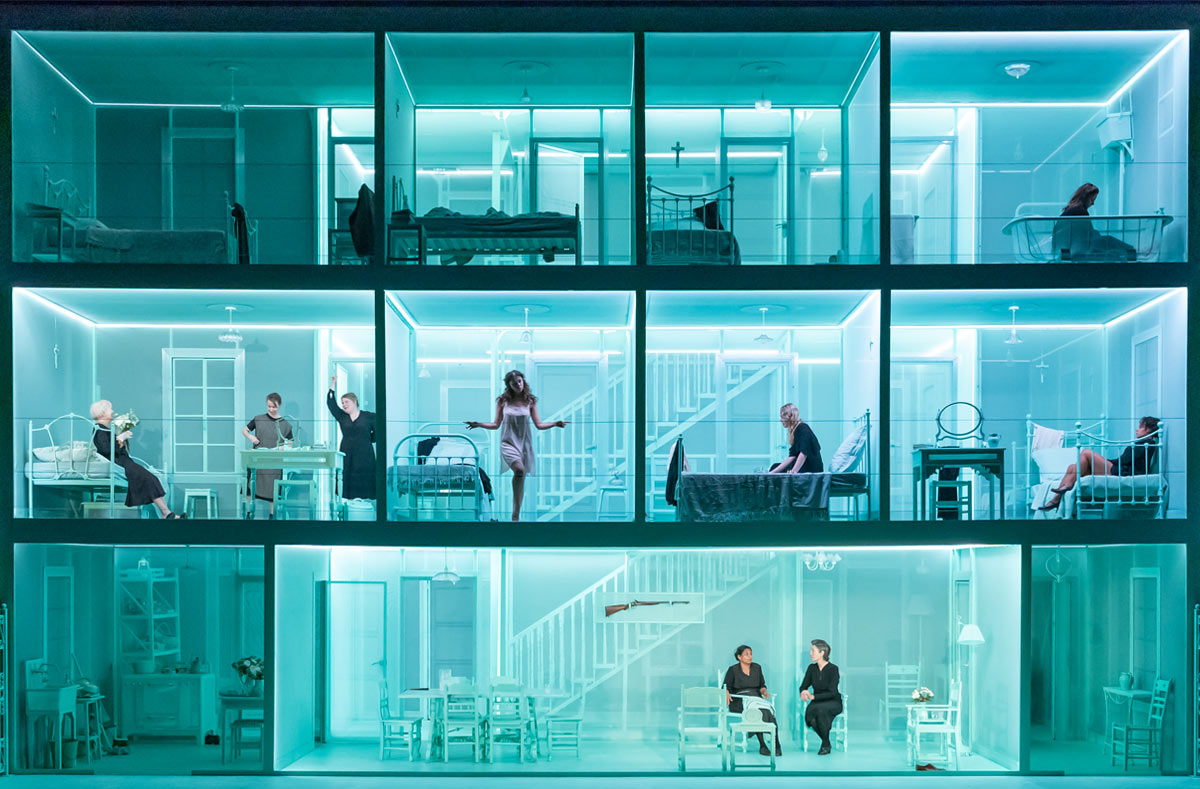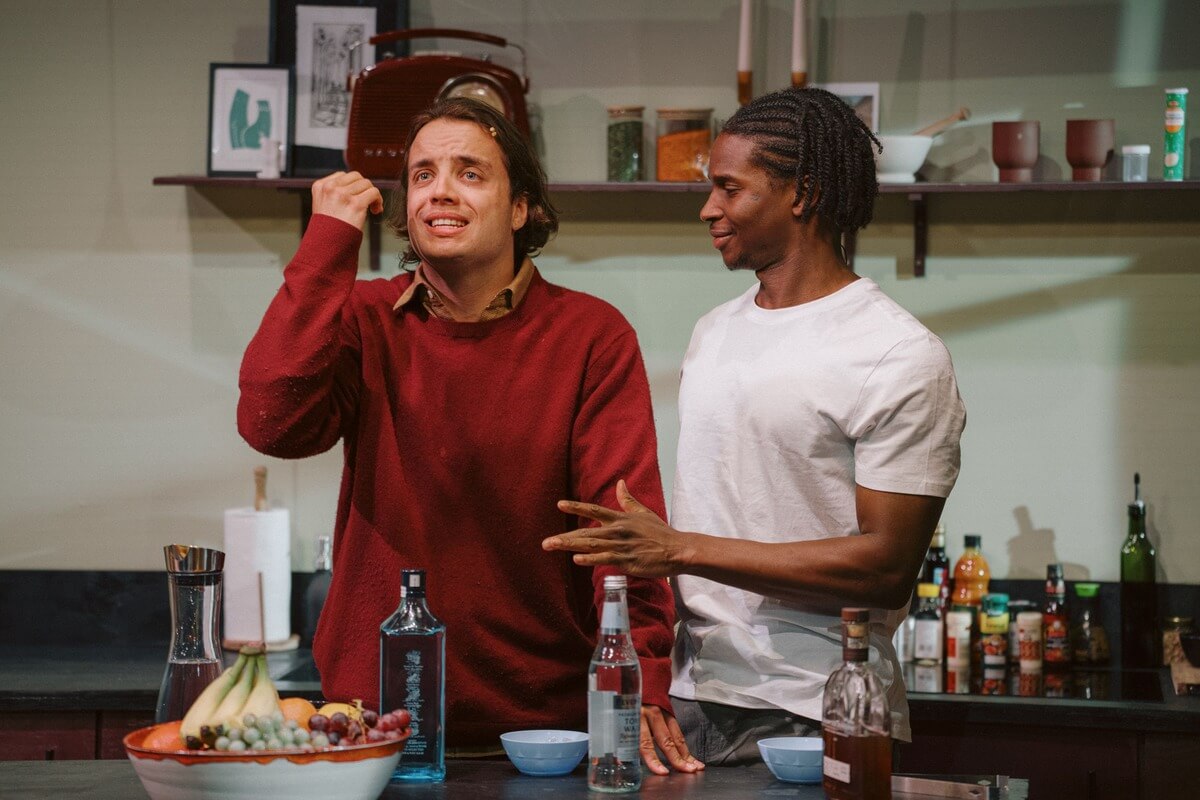Frederick Garcia Lorca’s renowned family drama takes on a new poignancy when we learn that the homosexual with progressive political views was assassinated by firing squad a mere two months after the work’s completion. But does Alice Birch’s treatment of his cruelly poetic work (with its venomous, vicious and expletive-laden script) help or hinder perception and understanding of a woman’s lot and her apparent requirement to suffer and serve in a patriarchal world? As always, where the perpetuators and facilitators of a male-dominated system are women themselves, (particularly when they are mothers), the anguish is all the more tangible and unsettling.
Harriet Walter follows a long and illustrious line of celebrated women who have tackled the part (perhaps most notably Glenda Jackson in the mid-1980s) but few have imbued the character with such a level of oppressive frigidity. Her austere and callous veneer shows a desperation to maintain order when the male figurehead has departed — a desperation which exhibits all the markings of internalised fear of the unknown, of youthful expression, and of her own regrets.
Rebecca Frecknall’s first production for the National as director, is a predominantly female affair presented on an almost entirely pale jade set by designer Merle Hensel. The eleven playing spaces (mainly open-sided bedrooms, but one large living room and another area serving as outside courtyard) enable the family of women to bicker and compare their individual chances of love and a life beyond the asphyxiating air of a home dominated by repression and toxic disappointment.
The eldest sister Augustias (Rosalind Eleazar) is betrothed to the most desirable and lustful man in the village of Valderrubio Pepe El Romano (James McHugh). Their stilted and uneventful evening meetings compare starkly with the sexually rapacious illicit trysts which transpire between him and the youngest daughter Adela (Isis Hainsworth) under the cover of darkness later most evenings. Meanwhile the lugubrious disabled sister Martirio (Lizzie Annis) pines for the same man whilst decrying anyone else’s love for him. Sisters are pitched against sisters and tragedy befalls the family when Bernarda Alba attempts to bring to an end the rot which she perceives will bring humiliation and disgrace upon her good name. Some of the best exchanges are reserved for that most special of relationships between the lady of the house and her long-serving housemaid Poncia (Thusitha Jayasundera) whose efforts to shine a gentle but honest spotlight on all the misconceptions and deceits, are met with a stoic refusal to face reality.

 The House of Bernarda Alba company at the National Theatre. Photo Marc Brenner
The House of Bernarda Alba company at the National Theatre. Photo Marc Brenner

